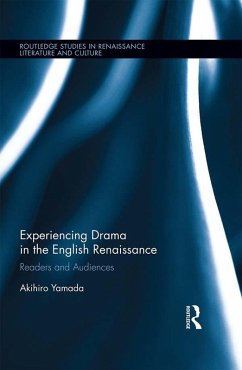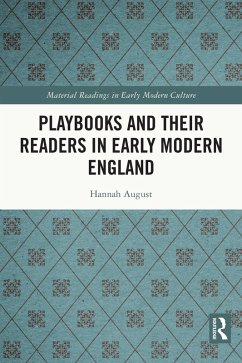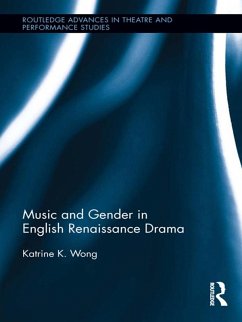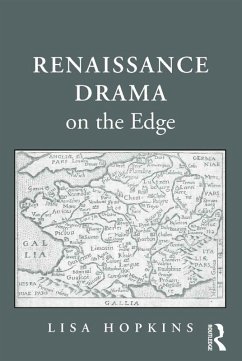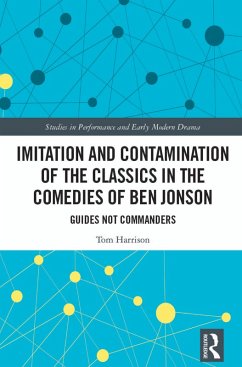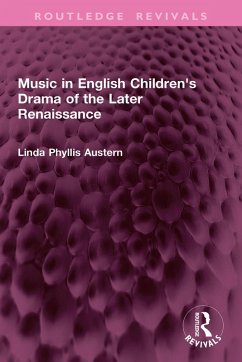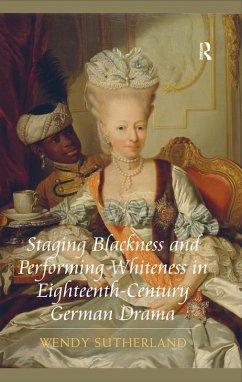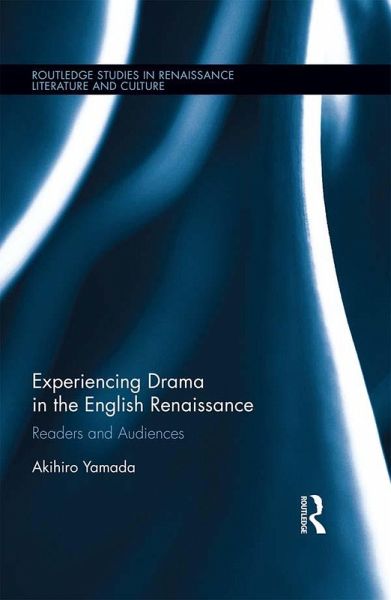
Experiencing Drama in the English Renaissance (eBook, ePUB)
Readers and Audiences
Versandkostenfrei!
Sofort per Download lieferbar
44,95 €
inkl. MwSt.
Weitere Ausgaben:

PAYBACK Punkte
22 °P sammeln!
This book investigates the complex interactions, through experiencing drama, of readers and audiences in the English Renaissance.Around 1500 an absolute majority of population was illiterate. Henry VIII's religious reformation changed this cultural structure of society. 'The Act for the Advancement of True Religion' of 1543, which prohibited the people belonging to the lower classes of society as well as women from reading the Bible, rather suggests that there already existed a number of these folks actively engaged in reading. The Act did not ban the works of Chaucer and Gower and stories of ...
This book investigates the complex interactions, through experiencing drama, of readers and audiences in the English Renaissance.
Around 1500 an absolute majority of population was illiterate. Henry VIII's religious reformation changed this cultural structure of society. 'The Act for the Advancement of True Religion' of 1543, which prohibited the people belonging to the lower classes of society as well as women from reading the Bible, rather suggests that there already existed a number of these folks actively engaged in reading. The Act did not ban the works of Chaucer and Gower and stories of men's lives - good reading for them. The successive sovereigns' educational policies also contributed to rising literacy.
This trend was speeded up by London's growing population which invited the rise of commercial playhouses since 1567. Every citizen saw on average about seven performances every year: that is, about three per cent of London's population saw a performance a day. From 1586 onwards merchants' appearance in best-seller literature began to increase while stage representation of reading/writing scenes also increased and stimulated audiences towards reading. This was spurred by standardisation of the printing format of playbooks in the early 1580s and play-minded readers went to playbooks, eventually to create a class of playbook readers. Late in the 1590s, at last, playbooks matched with prose writings in ratio to all publications.
Parts I and II of this book discuss these topics in numerical terms as much as possible and Part III discusses some monumental characteristics of contemporary readers of Chapman, Ford, Marston and Shakespeare.
Around 1500 an absolute majority of population was illiterate. Henry VIII's religious reformation changed this cultural structure of society. 'The Act for the Advancement of True Religion' of 1543, which prohibited the people belonging to the lower classes of society as well as women from reading the Bible, rather suggests that there already existed a number of these folks actively engaged in reading. The Act did not ban the works of Chaucer and Gower and stories of men's lives - good reading for them. The successive sovereigns' educational policies also contributed to rising literacy.
This trend was speeded up by London's growing population which invited the rise of commercial playhouses since 1567. Every citizen saw on average about seven performances every year: that is, about three per cent of London's population saw a performance a day. From 1586 onwards merchants' appearance in best-seller literature began to increase while stage representation of reading/writing scenes also increased and stimulated audiences towards reading. This was spurred by standardisation of the printing format of playbooks in the early 1580s and play-minded readers went to playbooks, eventually to create a class of playbook readers. Late in the 1590s, at last, playbooks matched with prose writings in ratio to all publications.
Parts I and II of this book discuss these topics in numerical terms as much as possible and Part III discusses some monumental characteristics of contemporary readers of Chapman, Ford, Marston and Shakespeare.
Dieser Download kann aus rechtlichen Gründen nur mit Rechnungsadresse in A, B, BG, CY, CZ, D, DK, EW, E, FIN, F, GR, HR, H, IRL, I, LT, L, LR, M, NL, PL, P, R, S, SLO, SK ausgeliefert werden.




